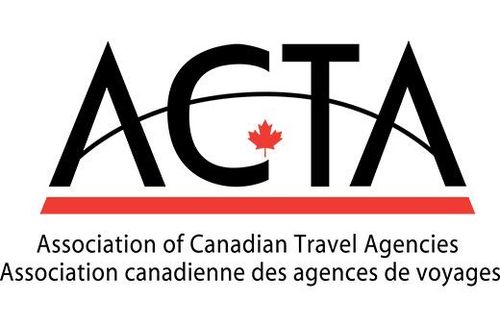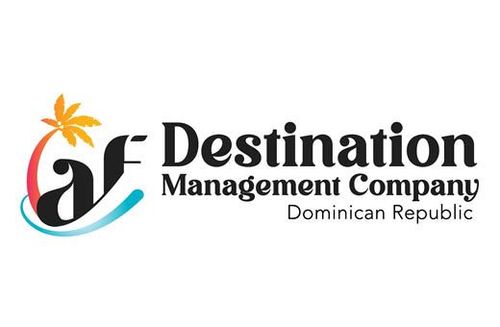Where travel agents earn, learn and save!
News / Here’s a roundup of highlights from ACTA’s emergency financial assistance webinar
ACTA is asking for additional and specific help for travel agencies

April 20 - ACTA has an urgent message for the federal government amid the coronavirus pandemic: by ACTA’s estimates, between mid-March and the end of July, up to 90% of Canada’s 24,000 travel agents will face reduced income or worse, lose their jobs.
In addition to the many emergency assistance programs that Ottawa has rolled out in recent weeks, “ACTA is asking the federal government for additional and specific help for travel agencies,” says ACTA President Wendy Paradis.
‘We need tax relief. We need to permanently waive GST payments for the first, second and third quarters of 2020. We need to cancel payroll tax for March 15 to Dec. 15," said Paradis, citing these and other measures as next steps that could help the retail travel sector during these incredibly difficult times. ACTA is also asking for interest-free sector-specific loans.
Paradis said ACTA will start a second wave of its letter and email writing campaign next week. “Keep your client testimonial videos coming,” she said. Agents looking to help the cause can also become members of ACTA, and donate to ACTA’s Advocacy Fund. “It’s heartening to see the industry working together. We will pull through this soon,” she said.
Paradis hosted yesterday’s ACTA webinar along with Maggie Santos, ACTA’s Director of Education and Certification, and Heather Craig-Peddie, VP Advocacy and Member Relations. The third ACTA webinar aimed at helping agents navigate the coronavirus crisis, yesterday’s webinar featured guest speaker Mike Libbey, Senior Accountant,Your Bottom Line. Libbey outlined updates to the Canada Emergency Response Benefit (CERB), the Canada Emergency Wage Subsidy (CEWS) and more.
The webinar took place just hours after Prime Minister Justin Trudeau said that the government will expand eligibility for loans through the Canadian Emergency Business Account (CEBA), and offer assistance with rent for small businesses.
When CEBA was first announced the threshold for eligibility was companies with payrolls between $50,000 and $1 million. Now that has been expanded to a minimum of $20,000 and a maximum of $1.5 million. So far more than 195,000 loans have been approved already, worth more than $7.5 billion.
Trudeau also announced the Canada Emergency Rent Assistance program to help small businesses pay their rent for April, May and June. Paradis says ACTA had already raised the issue of rent assistance.
During the webinar Mike Libbey from Your Bottom Line noted the highlights from the new measures, for another record number of registrants listening in. Here’s a look….
Emergency financial assistance through the Canada Emergency Response Benefit (CERB)
On April 15 Trudeau announced that CERB would be expanded to include people who are making up to $1,000 a month to qualify for the benefit, as well as those whose EI benefits have run out since the start of the calendar year and who still can’t find work because of the pandemic. Previously the maximum earnings for qualification for CERB was $2,000 a month.Libbey says bringing the minimum down to $1,000 per month in earnings is great news. “If you earn up to $1,000 per month, you now qualify for CERB. It’s a welcome change,” he said.
Emergency loans through the Canadian Emergency Business Account (CEBA)
Libbey says the fact that payrolls between $20,000 and $1.5 million now make a business eligible for CEBA loans, expanded from the original $50,000 – $1 million, is also welcome news.To apply for CEBA, “you will need to apply directly with your financial institution. The loan can be used for payroll, rent, utilities, that sort of thing. The loan is worth up to $40,000, interest-free until Dec. 31, 2022. “And if you pay back $30,000 of that $40,000 by Dec. 31, 2022, they will forgive $10,000,” says Libbey. If the money is not paid back by that time, then the remaining balance is converted to a three-year loan at 5% interest.
Libbey suggests that companies that don’t qualify for CEBA can also apply for loans from Export Development Canada (EDC) via the company’s financial institution, or BDC loans through BDC directly.
Help with payroll through the Canada Emergency Wage Subsidy (CEWS)
CEWS offers a 75% wage subsidy to eligible employers for up to 12 weeks. Libbey says that for employees on the payroll and not working, the CRA will reimburse 100% of employer-paid contributions (CPP and EI) for eligible employees for each week, retroactive to March 15.Companies must see a decline in revenues of at least 15% in March, and at least 30% in April and May. Companies can do a year-over-year comparison for March, April and May 2020 versus the same months in 2019, or do a comparison based on average revenues for January and February 2020.
Libbey says the number of employees that a company has is irrelevant for CEWS. It’s also not mandatory for the employer to pay the 25% balance. That said, “there are serious consequences” if an employer abuses CEWS, for example, using the subsidy for anything other than payroll.
Agent commission that is not yet in hand
A Q&A session at the end of the webinar included questions from agents about CERB and commissions. “I have commission coming to me from past bookings, but I won’t get that commission until later in April and May. Can I still apply for CERB?” The answer seems to be yes, says Libbey. “CERB eligibility is based on income that is received. It’s when the money hits your hand. The commission hasn’t been received yet. So yes, you can still apply for CERB.”Another agent asked if she was still working but for a limited number of hours, could she still apply for CERB. “A few days ago I would have said no. Now with this morning’s new announcement from Prime Minister Trudeau, my answer has changed to yes. You’re still able to work and you can retroactively apply for CERB.”
ACTA’s website is ACTA.ca. The April 16 webinar will be archived at the site soon. The site for Libbey’s accounting firm is YourBottomLine.ca.
More Travel News:
Porter Airlines accessing Canada’s federal wage subsidy program
How travel demand changed after weeks of lockdowns
TIAC Tourism Advocacy Update
Transat announces its intention to recall all its employees











